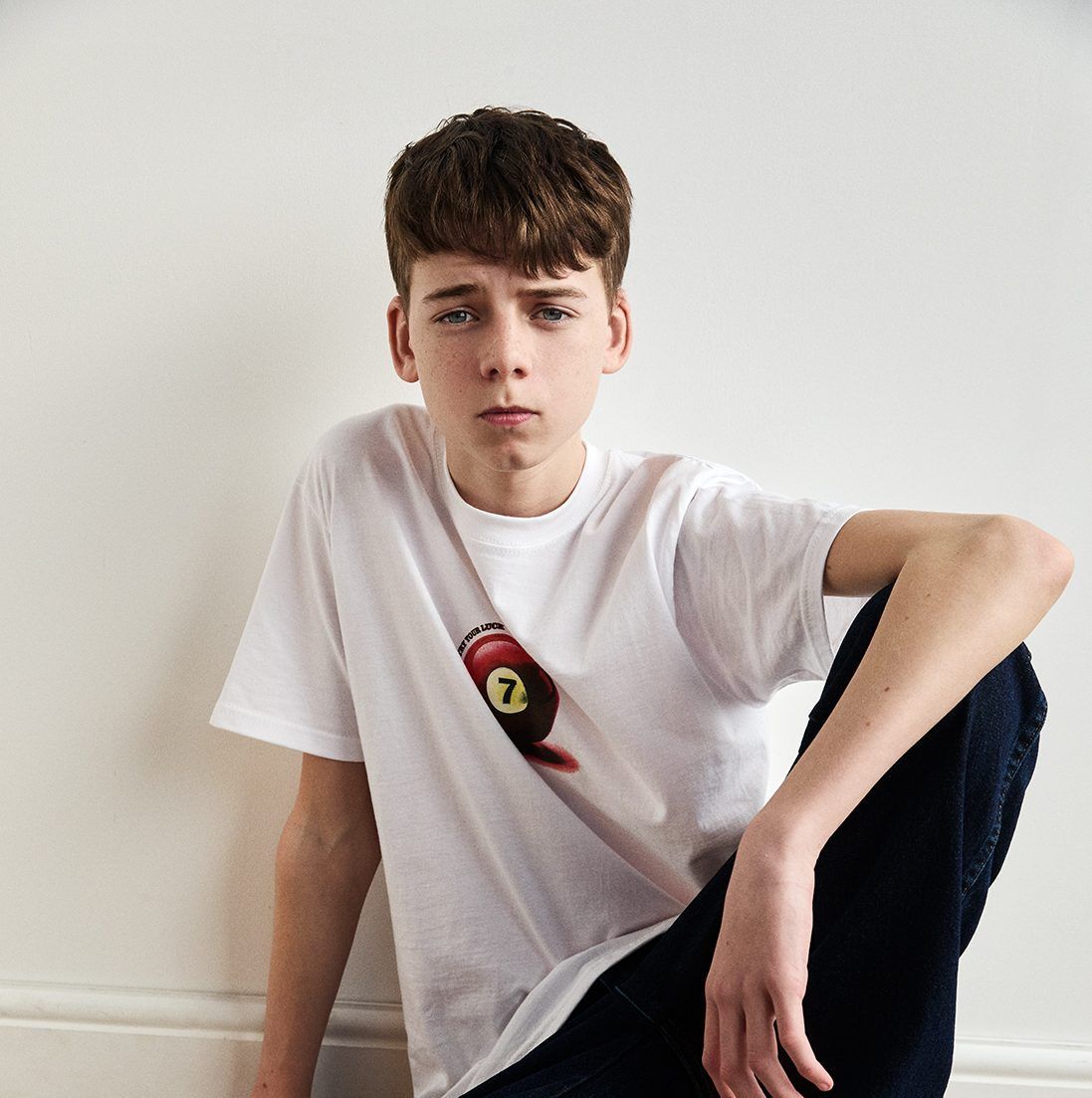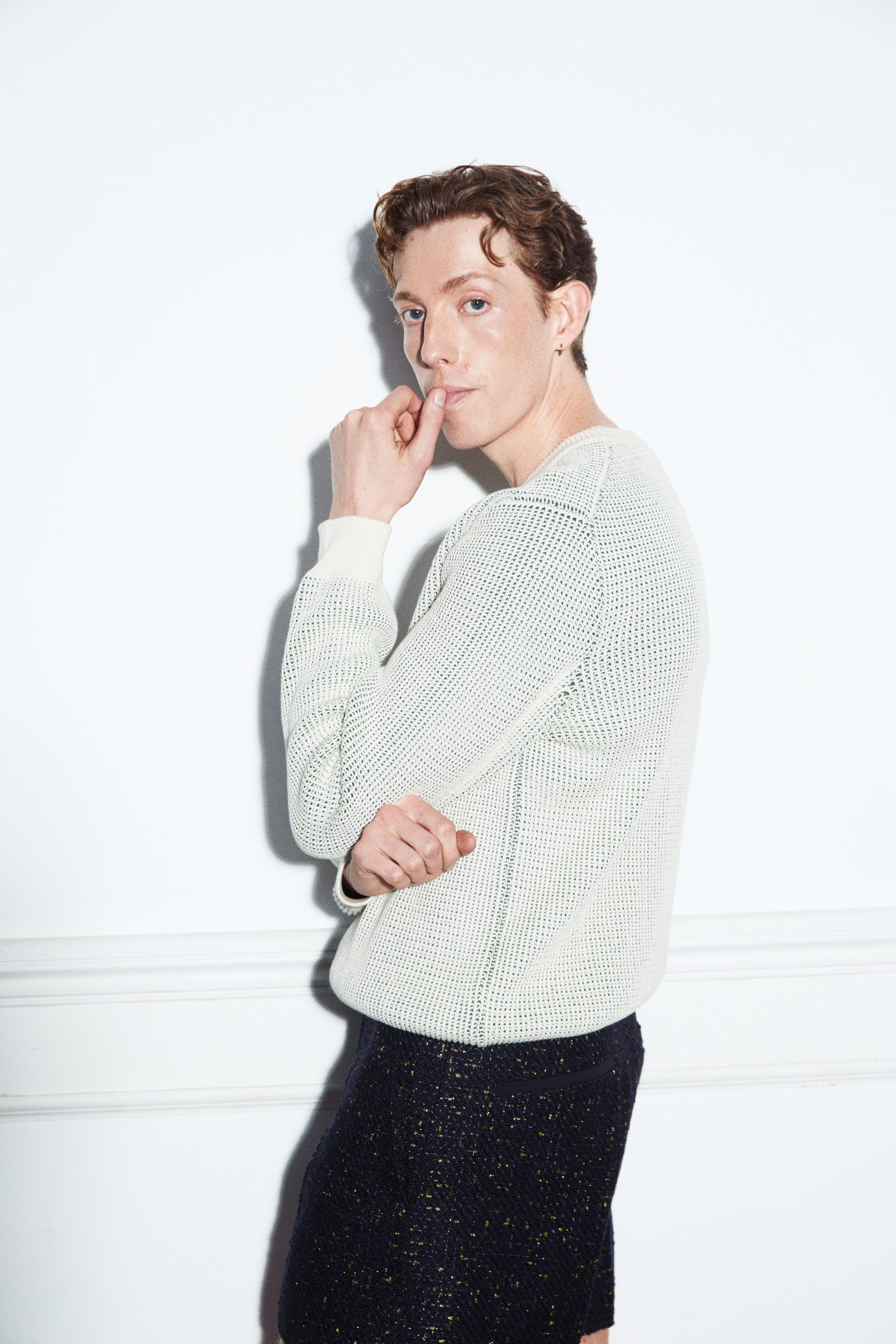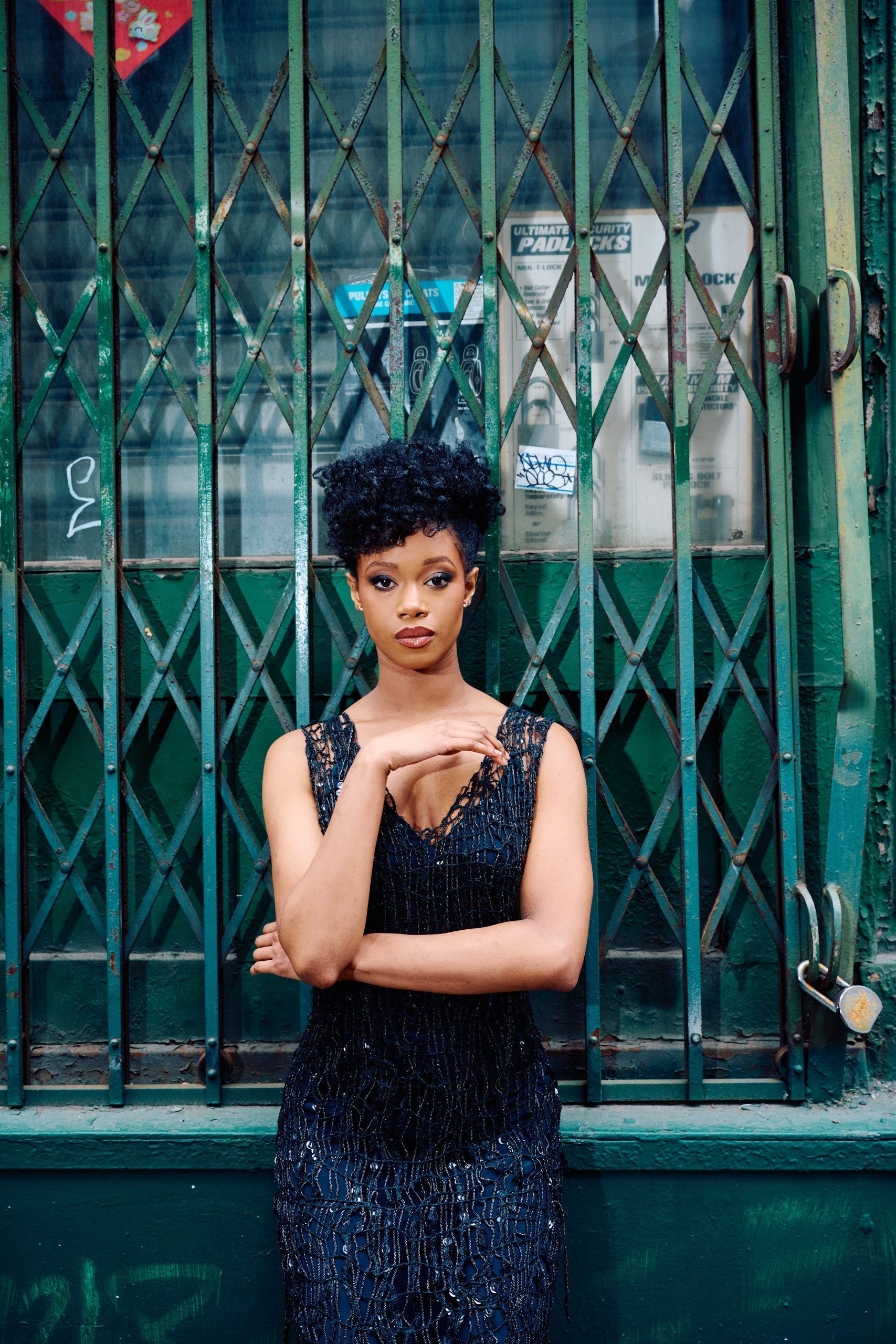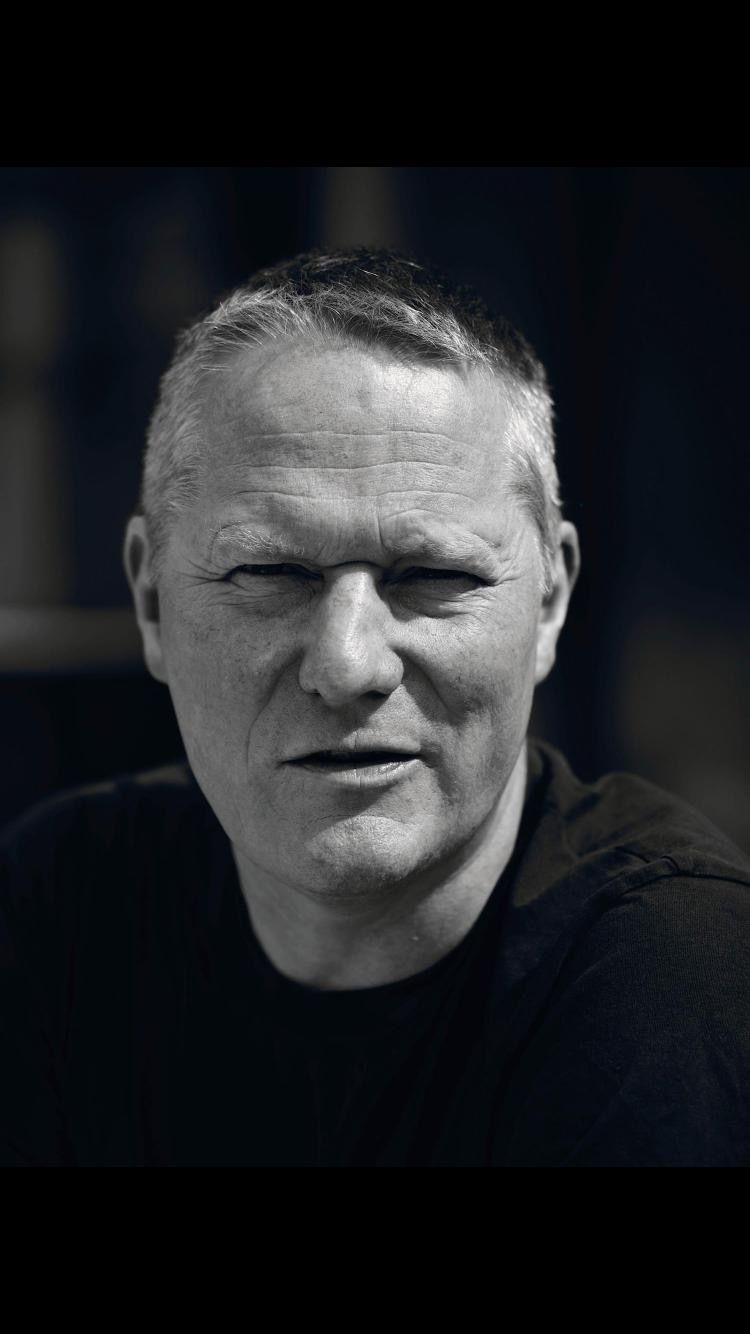Starring in the new film Napoleon directed by Ridley Scott, rising actor Edouard Philipponnat is ready to take on the world.
Edouard Philipponnat’s upbringing is exactly why he’s truly an actor to watch. Born in 1999, the French-Finnish actor was raised with his older brother across Monaco and Finland. At the age of 13, his father, a former French Foreign Legion Officer, took Philipponnat on a ‘father and son’ trip to sunny Los Angeles, randomly partaking in an acting class and, much like the films say, the rest is history. That same year he would be cast as a young squire in Dragonheart 3: The Sorcerer’s Curse and, since then, has acted in projects like Lost in Wonderland and The Runner, his first leading role.
Now he takes on a larger-than-life tale Napoleon. In the film, Philipponnat plays 20-year-old ruler Tsar Alexander opposite esteemed actor Joaquin Phoenix’s Napoleon. It’s a role that he describes as a “once in a lifetime experience,” especially in regards to working with Ridley Scott again who he worked with on House of Gucci. For an actor with family that has military ties and is French, the experience hits close to home.
Dressed in Celine, 1883 Magazine chats with Philipponnat following the film’s London premiere, discussing everything from working on the film, his aspirations as an actor, and more.
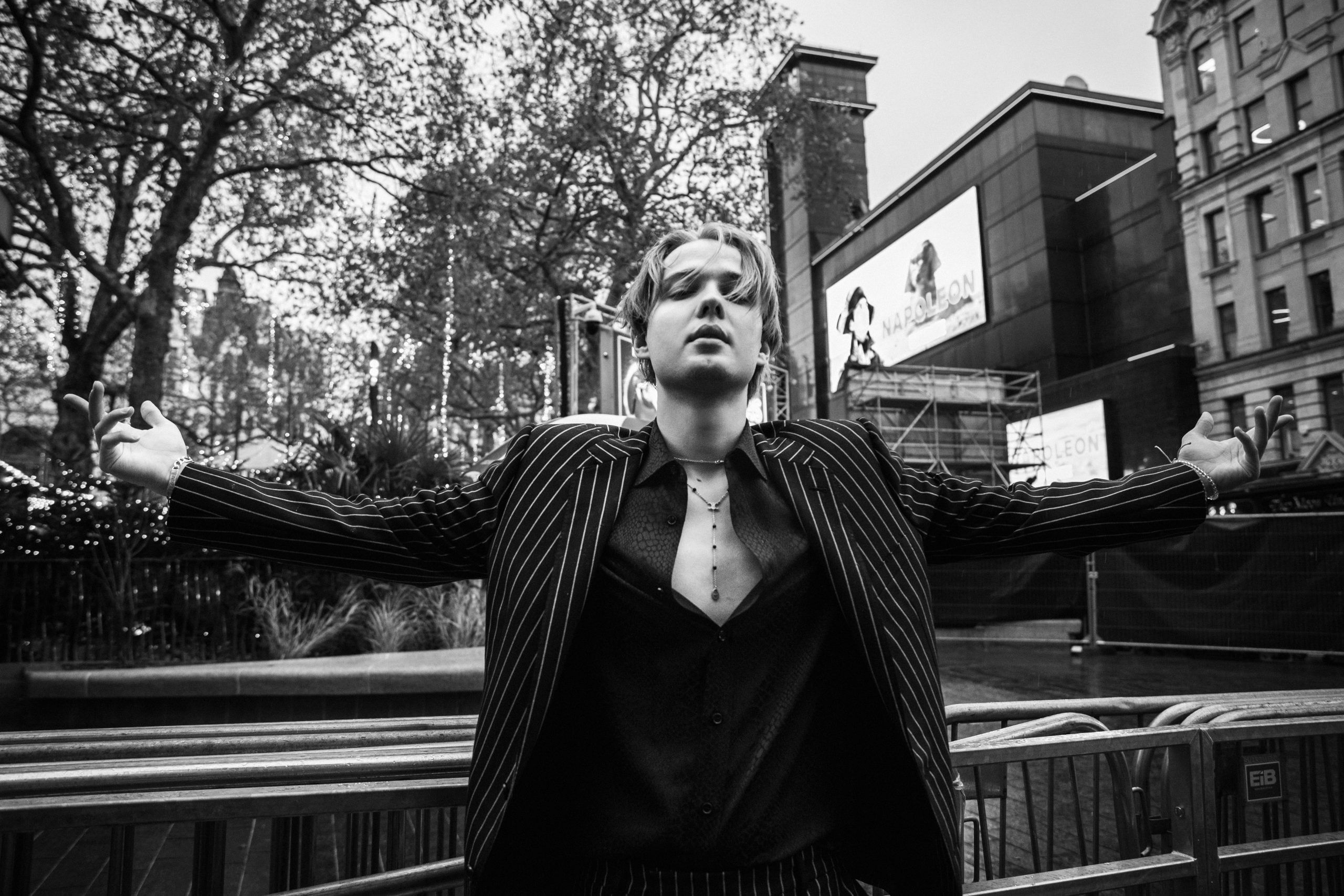
Firstly, congratulations on the release of Napoleon, this is your second time working with Ridley Scott, how has that been for you?
Thank you! It’s been an absolute dream come true. I was just thinking this morning how lucky I am that this opportunity came to me now rather than earlier because I feel like I’ve grown enough in the past few years to really be able to take it in and understand it. Whether it was filming a tiny cameo scene for Sir Ridley in Gucci or filming Napoleon, just the fact that you’re there, witnessing the masterclass he gives as a director and producer is truly something magical.
With him it is of course the grand scale of it that stands out, the epicness, so to say. But I think if I were to answer what it has been like to witness it in person, I would describe it as very intimate. He is somehow capable of managing hundreds of moving pieces, crews and cameras around you, and when it’s time, he has everyone hold and he sits with you. He talks it through with you as if it were just another Wednesday. He instills calmness and centers you, allowing you to go out there and perform.
The film took only 62 days to shoot, which for a film of this quality is incredibly short. Ridley Scott is known for his speed, as an actor, how did having such a short shooting schedule make the project for you? Was it easier to connect with the character because you had such a short time with him?
This probably applies to the other actors more so than me, but I think you definitely feel the tempo of the Ridley Scott orchestra. My experience was that you spend a few hours with hair and makeup who, by the way, are the absolute pioneers in their field, and about another hour getting into all of the layers of your costume. Then once you arrive on set you chat with the director for a minute or so, co-stars arrive, you read lines once, and then you go at it and you have about 3 takes to get it right. That’s more or less what it looks like. He shoots about a whole day’s worth of footage before lunch and then goes back at it again. Like I said it’s an orchestra. I just try to be invisible in the back until he needs me!
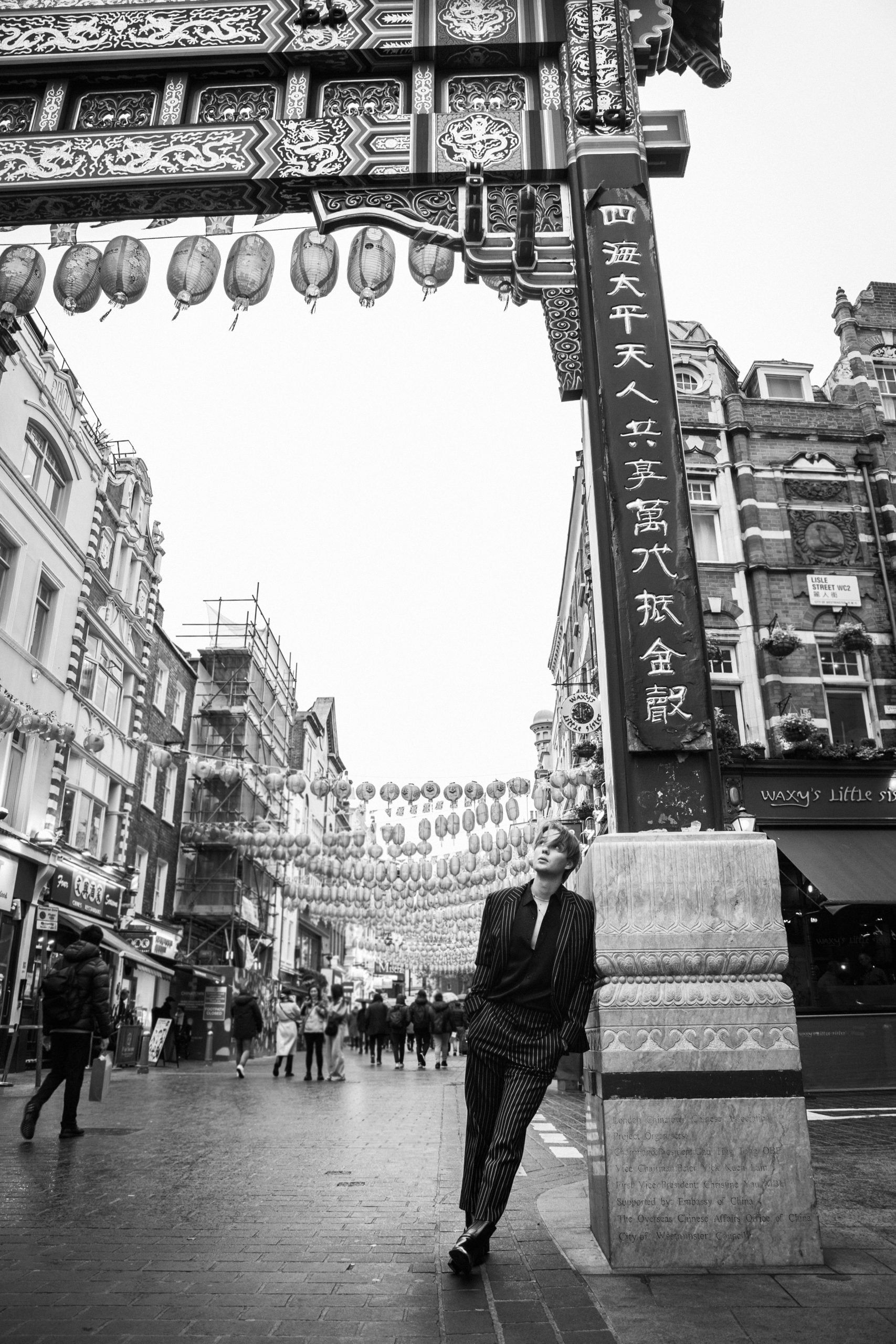
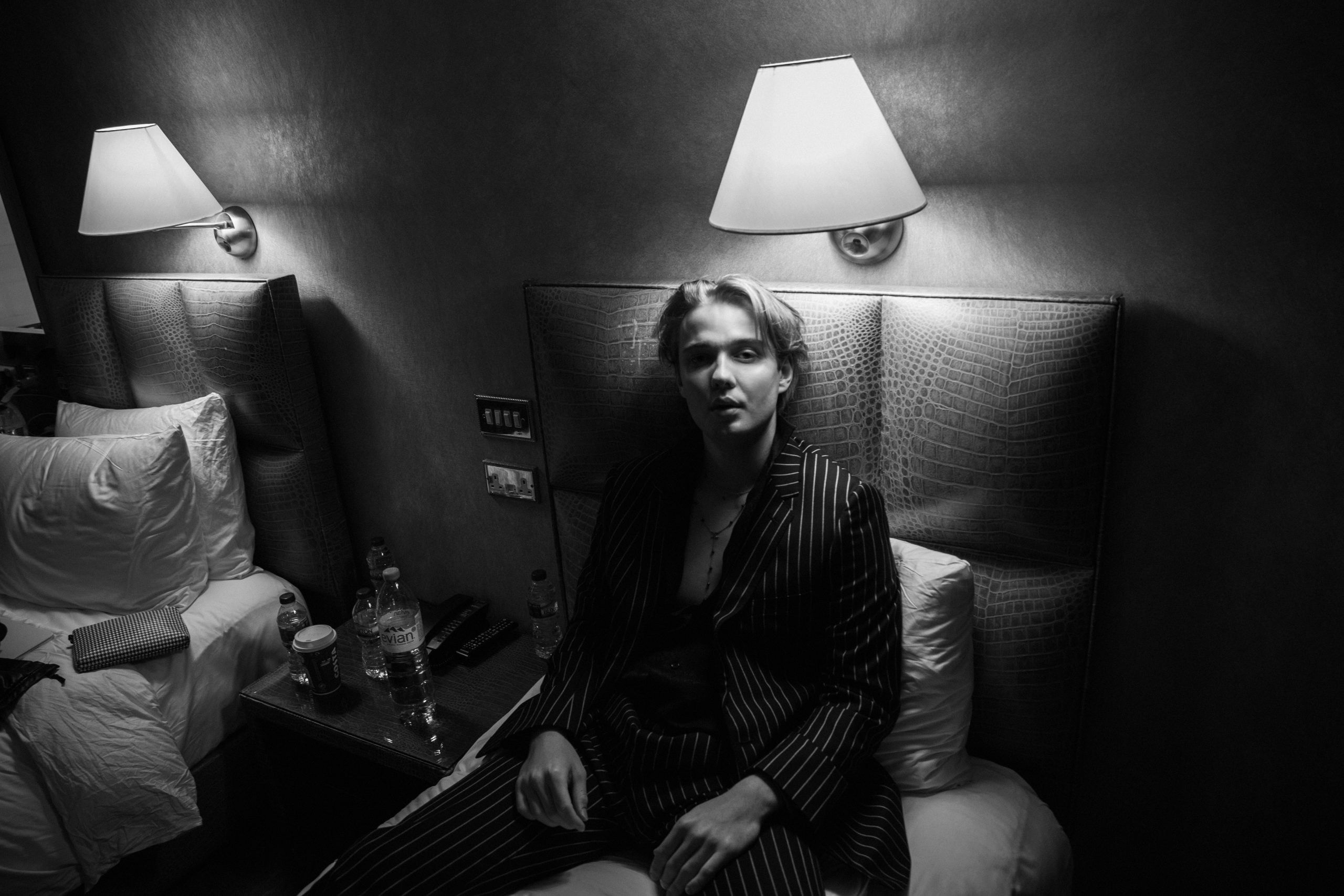

You play Tsar Alexander I, how was it taking on such a historic character? What sort of preparation did you have to do?
It was such a privilege because characters like him and dramas don’t come along that often. It’s very expensive to dive back and tell a story from hundreds of years ago especially at this scale. I was always aware of how fortunate I was to be standing in those shoes. Originally when I received the news that I was chosen to play this character, the role was smaller. I received some research materials from the production and of course did my own. But I think it was right when pre-production started in London that I got the new script and saw that the role had grown. At that point I had already started horse riding lessons, which lasted about 4 months, learnt Russian for about 7 months and then did dialect work for about 2 months.
Costume designer Janty Yates has discussed how important the historical accuracy was, for example, different embroideries were used for specific generals of Prussia, Russia, France etc, however something that I find fascinating about this film is how much the actors were allowed to improvise. How was that for you as an actor?
Yes! Janty and her team are just so incredible. I couldn’t tell you how much time and effort went into those costumes, but what I do know is that when I flew in for rehearsals and fittings, they had about 5-6 tailors, all from different countries, flown in for my costume. It was so delicate that I wasn’t allowed to wear the uniforms until a few minutes before the cameras rolled.
Sir Ridley was extremely generous and allowed us to have the freedom to improvise. I remember having a long scene with Vanessa on my first day, and I think I improvised about a one page monologue, and there’s a little snippet of that magic that we found there in the film. Same goes for with Joaquin. We tried to do some discrete improv, and it led to us dancing together in front of our armies. Not sure if we’ll ever see that footage but it’s something worth seeing.
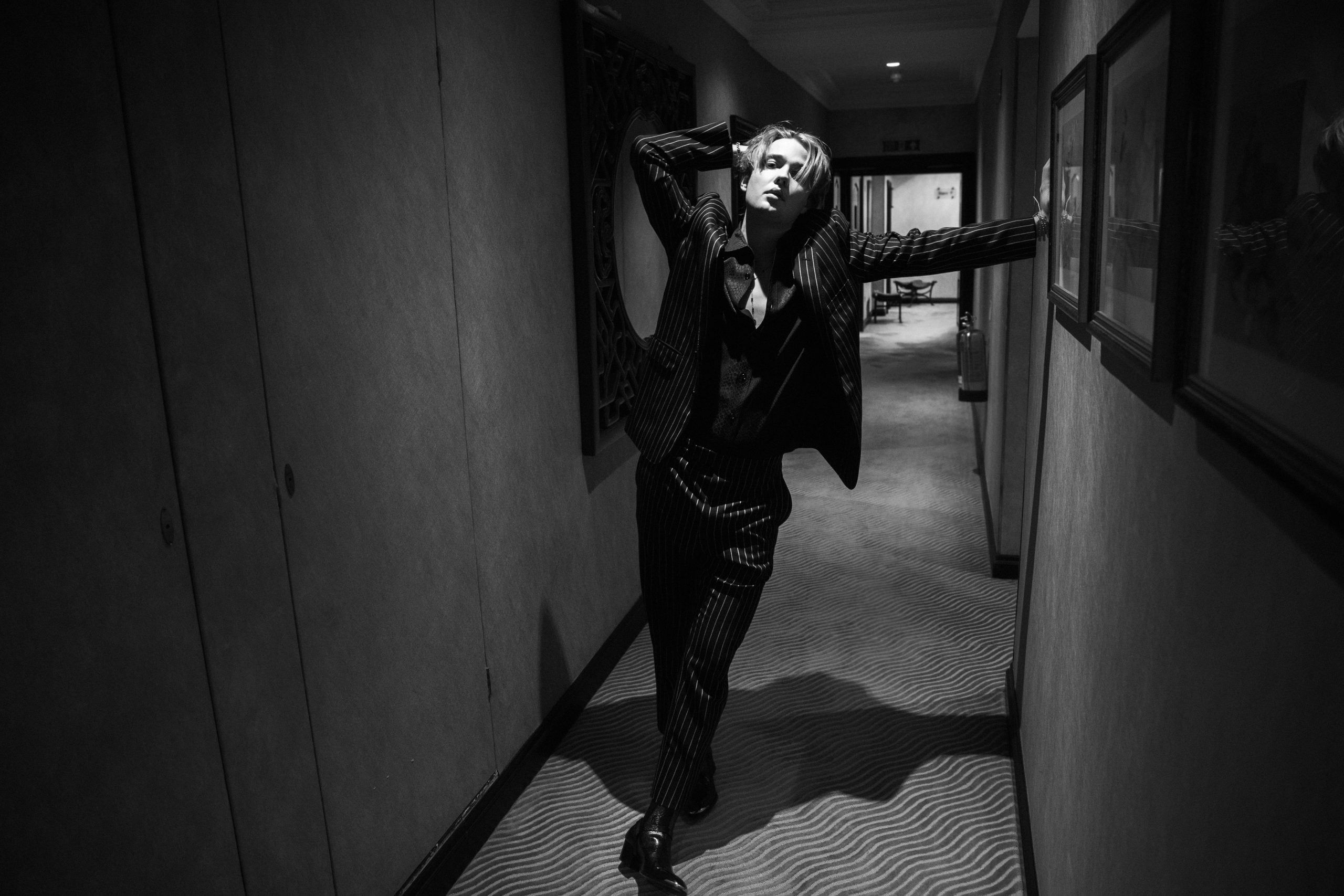
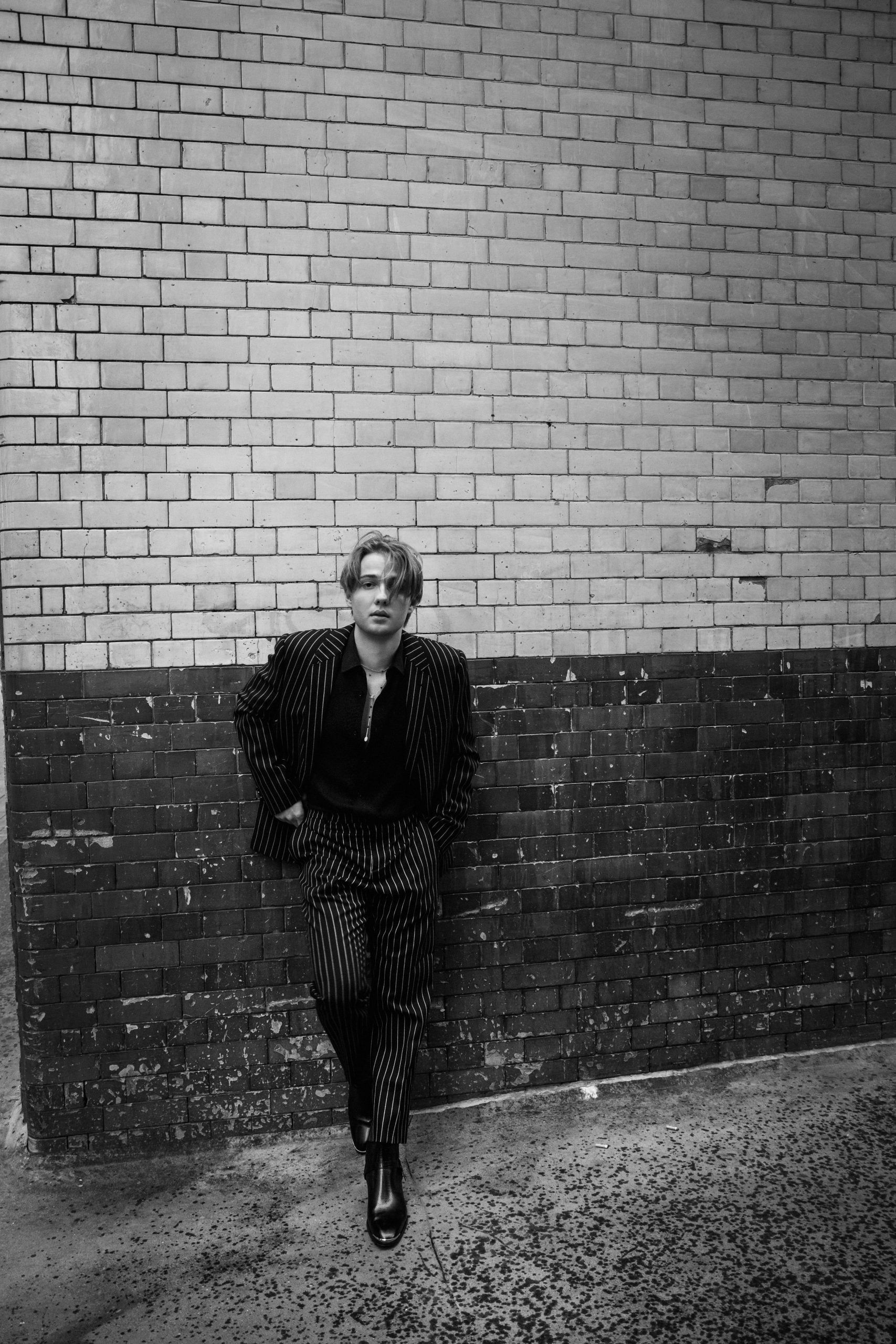
Your first major feature role was in The Runner where you give an incredible performance as Aiden, to produce that level of performance at such a young age gives a real sense of your versatility as an actor. You got some real critical acclaim for your portrayal, how do you think you have developed as an actor since then?
That movie was just something else for me. The way my dad puts it; you caught the train. That movie came about in the most unorthodox of ways. I’m sure I wouldn’t be here talking to you guys today, nonetheless, be an actor were it not for that film and Michelle Danner, the film’s director and Gigi Malavasi, the Cinematographer. I’m not sure how to answer the whole ‘growth’ thing. When I first moved to Los Angeles to pursue acting, it was definitely tough to push past the denials and rejections and keep confidence in myself. I don’t really have a ‘go-to-move’ when it comes to a role, so in that sense, it’s not like I have a plan going into my work. However, I think I’ve grown to believe in myself and trust in my ability to listen, which is more than half the work, and to just be human, be nervous, and be scared. Those are some of the most fascinating things to watch on screen. So yeah self-belief and love!
You’ve taken on such an impressive array of characters, as an actor, which is your favourite genre of film to act in? What is it about it that appeals to you?
I’m not sure if I have a favourite genre. I love Indie movies, not only because it tends to have a kind of truthful and humbled approach to storytelling, but also because the filming experience is very personal. You become close with the crew, there’s no ego or hierarchy. Everyone is helping each other out and doing what they love. Although I will say I have always wanted to be in a spy/investigation thriller, something in the nature of Shutter Island (absolute masterpiece).
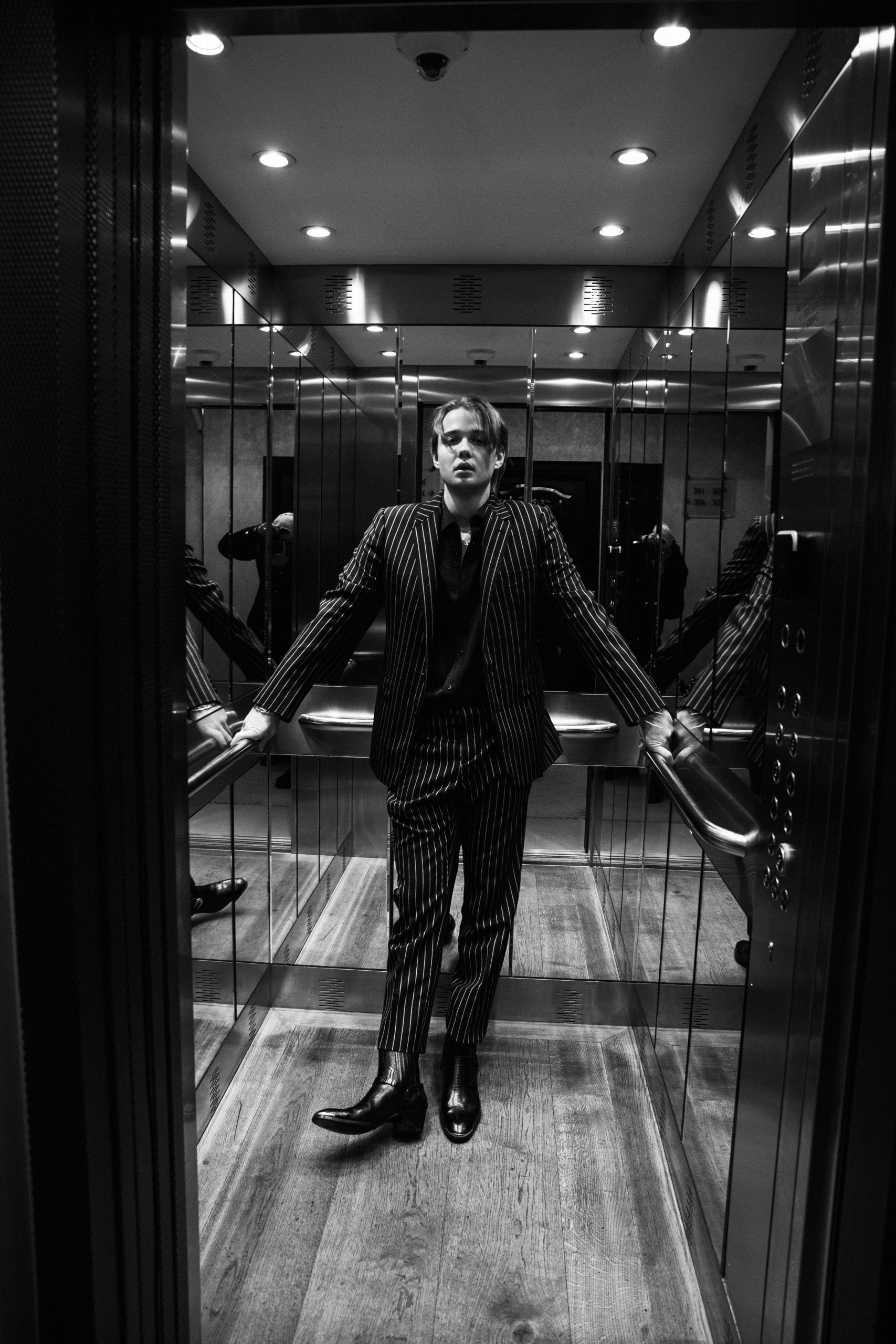
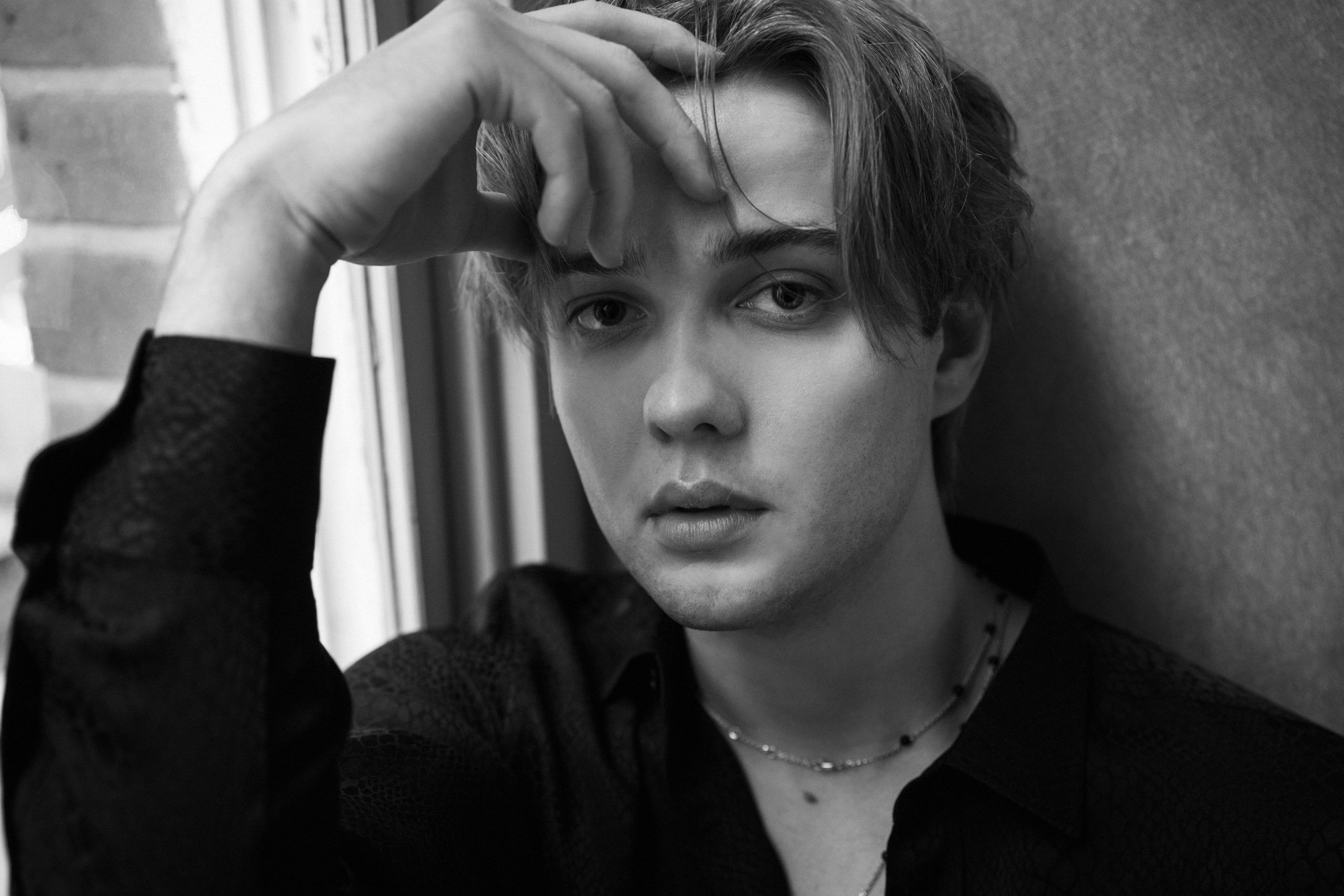
I’ve seen that you’re a big indie movie fan, is there a movie in particular that was formative to you as a young actor?
Yes, for me arguably one of the best movies ever is What’s Eating Gilbert Grape. The performances are fantastic, and Dicaprio is just something else in that. But what I love the most is the look of the film, its texture was a character in itself and this allowed the movie to break the barrier between film and real life. It’s art. Oh, and Good Will Hunting, can’t beat that.
You speak an impressive 4 languages and have lived in numerous cities all over, if you could spend a day anywhere, where would you go?
Japan I think. Nicest people in the world.
Your next project is Lost in Wonderland, a modern-day retelling of Alice in Wonderland, where you play William/The Mad Hatter, how was it taking on such an iconic role in a reimagined setting?
The filming of that was incredible. We spent 2 months roaming around Budapest, which is truly one of the most beautiful cities in Europe. I loved the project because it had a very Indie feel to it. Meaning, yes, it’s a retelling of Alice in Wonderland, but it is very gritty—no flying cartoons or walking cards or anything like that.
My character, William, who represents a version of the Mad Hatter, doesn’t work with hats. He does stencil artwork, which if you are not familiar with is more or less cutting through metal to shape your artwork. So it’s quite grounded in that sense. But It was definitely intimidating, not only because there were great actors on board, but also because everyone has seen the portrayal of this character from arguably one of the most famous actors on earth.
It’s very different, it’s new and unique, and, to be honest, I had no idea what I was doing. We brought a lot of new and quirky elements into it. Haven’t seen it yet but I know it takes you on a journey and a half.
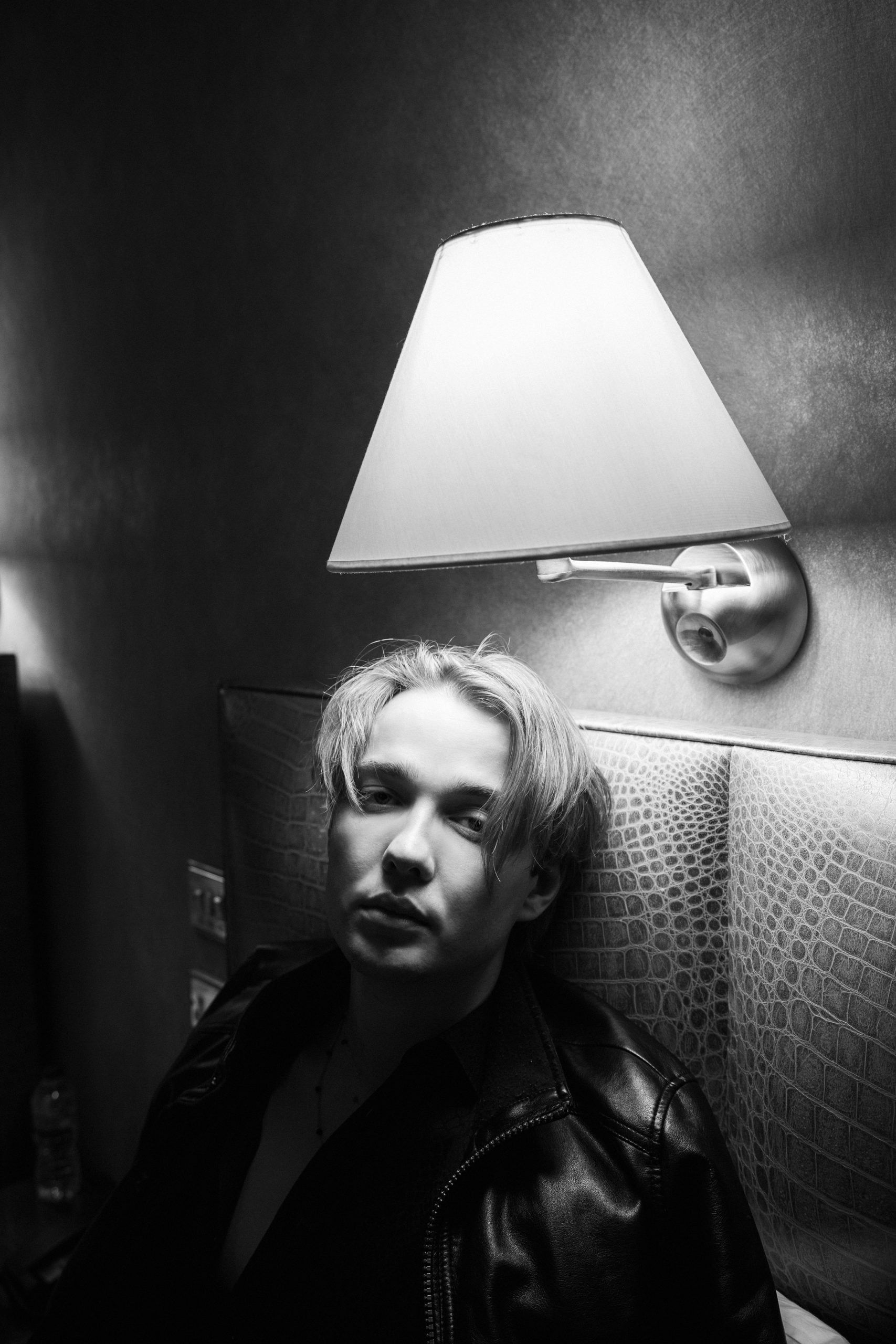
As you’ve now worked with one of the most iconic directors twice, do you have a bucket list of directors that you’d like to work with?
I won’t name the Scorseses and the Tarantinos of the industry because I think that is a given, but I would actually love to work with Pedro Almodóvar. I love the worlds he creates. Very Indie. Art.
As someone who clearly loves their craft, are there any actors that you’d like to work with? You’ve crossed off some incredible ones with your last two movies alone!
Of course. I’ve always wanted to work with Johnny Depp, whether acting alongside him or being directed by him. I think he’s brilliant. And of course, him included, you have the great of greats such as the Dicaprios, De Niros, Travoltas and Streeps of the industry. One can always dream!
Lastly, what would you like to manifest for yourself for the upcoming year ahead?
I’m not sure, I’m really just focused on getting one step in front of the other. I know how lucky I am to be able to call this work and I just hope I’ll be able to continue to call this my job for the rest of my days. Manifesting happiness sounds pretty good to me.
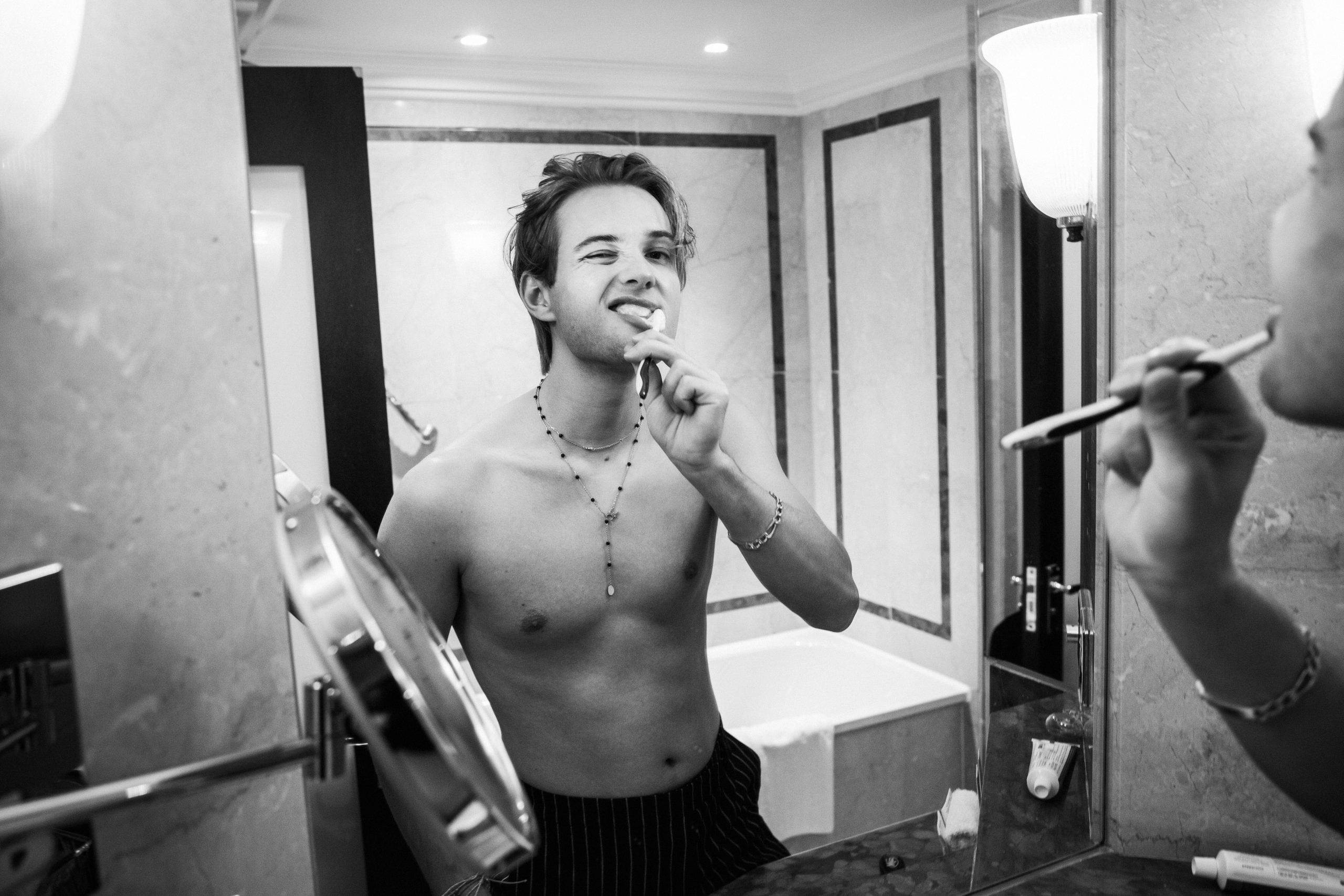
Napoleon is in theatres now.
Interview Amelia Walker
Photography Lee Malone
Clothing Celine


